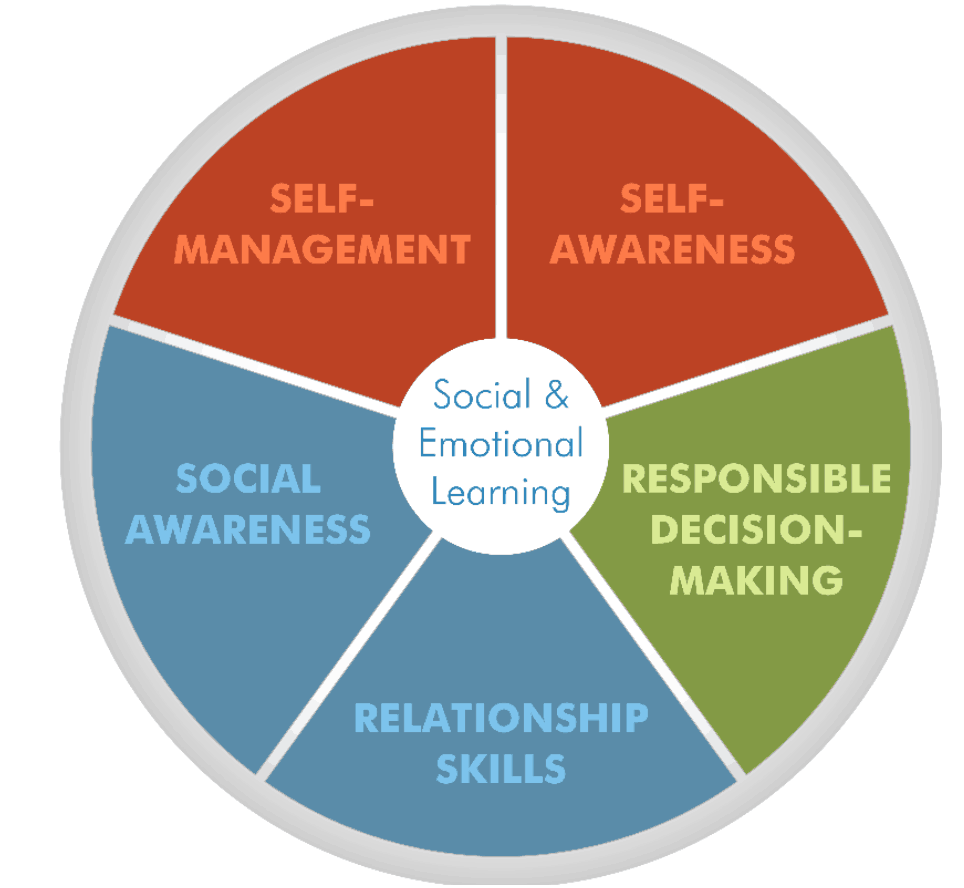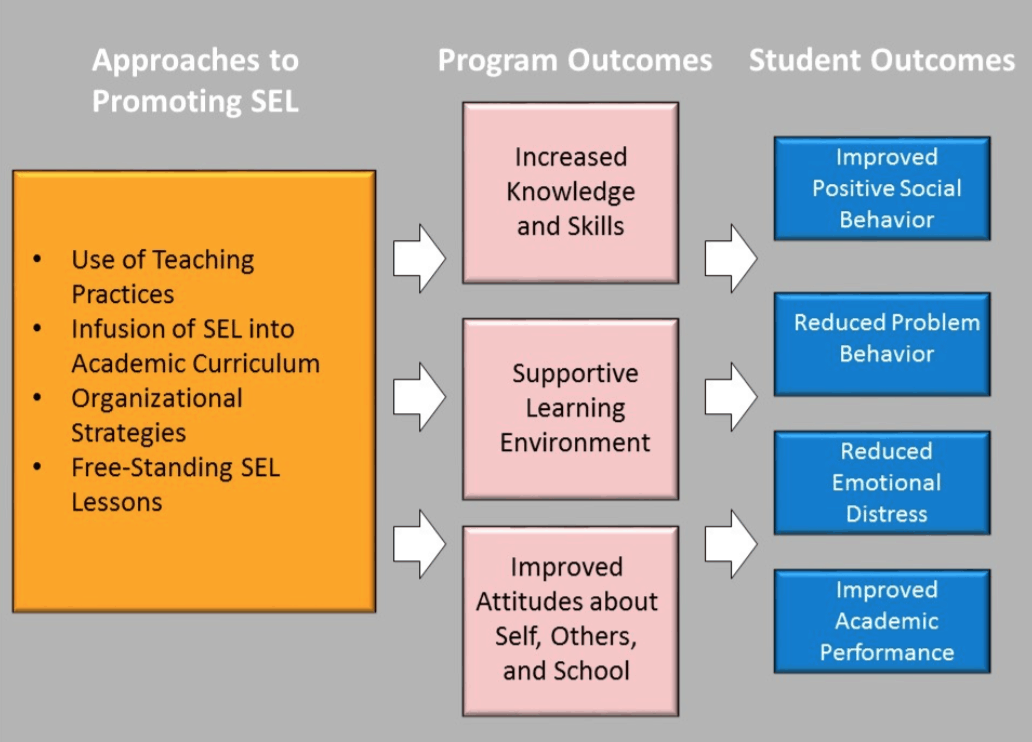Getting Smart Podcast | CASEL: Leading Advocate for Social Emotional Learning

Why is social emotional learning (SEL) important?
Roger Weissberg says there is strong research about positive academic and life outcomes. He points to a Columbia University cost-benefit analysis of SEL programs that found an $11 return for every $1 spent.
Weissberg is a Distinguished Professor of Psychology and Education and NoVo Foundation Endowed Chair in Social and Emotional Learning at the University of Illinois at Chicago (UIC), where he directs the Social and Emotional Learning (SEL) Research Group. He is also board vice chair and chief knowledge officer for The Collaborative for Academic, Social, and Emotional Learning (CASEL).
Weissberg adds that most teachers acknowledge the importance of social emotional learning. And, with recent changes to federal legislation, there is growing national interest in educating the whole child. Tom recently had a chance to chat with Weissberg on the Getting Smart Podcast about all things SEL:
Teaching SEL
CASEL defines SEL as five competency clusters:
- Self-awareness: The ability to accurately recognize one’s emotions and thoughts and their influence on behavior. This includes accurately assessing one’s strengths and limitations and possessing a well-grounded sense of confidence and optimism.
- Self-management: The ability to regulate one’s emotions, thoughts, and behaviors effectively in different situations. This includes managing stress, controlling impulses, motivating oneself, and setting and working toward achieving personal and academic goals.
- Social awareness: The ability to take the perspective of and empathize with others from diverse backgrounds and cultures, to understand social and ethical norms for behavior, and to recognize family, school and community resources and supports.
- Relationship skills: The ability to establish and maintain healthy and rewarding relationships with diverse individuals and groups. This includes communicating clearly, listening actively, cooperating, resisting inappropriate social pressure, negotiating conflict constructively and seeking and offering help when needed.
- Responsible decision-making: The ability to make constructive and respectful choices about personal behavior and social interactions based on consideration of ethical standards, safety concerns, social norms, the realistic evaluation of consequences of various actions and the well-being of self and others.

Like character strengths, social emotional learning must be taught and integrated into the life of the organization. Roger calls it a “both/and strategy” that includes four elements represented by the acronym SAFE:
1) Sequenced—connected and coordinated activities to foster skills development;
2) Active forms of learning to help students master new skills;
3) Focused— containing a component that emphasizes developing social and emotional skills; and
(4) Explicit—targeting specific social and emotional skills (see the CASEL theory of action below).

After working in this field for over 30 years, Weissberg is pleased to see such strong momentum behind SEL. He sees practices that promote SEL–including project-based and cooperative learning and efforts to promote a positive school climate–becoming much more prevalent.
Roger recalls the importance of a high school project to his son. In making a video about a rock band, he set learning goals, carried out a complex project, and presented it to the community. “Projects allow students to set goals, decide on an approach, monitor their progress and report out,” said Weissberg.
Backstory of SEL
The Collaborative for Academic, Social, and Emotional Learning (CASEL) was formed in 1994 by Tim Shriver following a series of meetings with researchers, practitioners, and child advocates to discuss the implications of social and emotional learning (SEL) for education.
Twenty years ago, CASEL moved to the University of Illinois at Chicago under the leadership of Roger P. Weissberg. The following year, a groundbreaking book, Promoting Social and Emotional Learning: Guidelines for Educators, defined SEL and demonstrated its significance for the education of all students.
Weissberg served as president of CASEL for 18 years and after hiring CEO Karen Niemi now serves as Chief Knowledge Officer.
In the post-NCLB era, states, school district and networks, and individual educators are embracing broader aims including SEL and growth mindsets. The momentum has been building for a decade as a result of college and career readiness research, employer input, opposition to standardized testing and interest in positive school climate and equitable discipline practices.
This is a broad movement with multiple drivers. SEL is often used broadly in education and often includes (or is related to) strategies to build productive mindsets and supportive cultures, character development, behavior management, civic education, and career guidance and preparation.
Through a partnership with the Council of the Great City Schools, CASEL developed a relationship with eight large school districts in 2011. Recently they added Atlanta and El Paso. The district partnerships representing about 2 million students. Soon, through a partnership with about 17 states, Weissberg thinks they’ll be benefiting about a third of the nation’s students.
While there is strong momentum around SEL and related learning objectives, there are several challenges:
- Despite growing acceptance of the CASEL framework, there is still not a consistent lexicon for non-academic skills and dispositions and even less progress around how to measure growth;
- No consistent home for instruction (i.e., no courses or dedicated time) and no dedicated spending patterns; and
- Idiosyncratic initiation (new leadership, discipline problem, employer feedback).
To address these challenges, Weissberg helped organize a national commission hosted by the Aspen Institute.
National Commission to Build SEL Roadmap
Measurement is a key issue in the field and a priority for CASEL. For the being, said Weissberg, the focus should be at the classroom level, with feedback systems that are helpful for teachers, students, and parents. Indicators such as climate surveys can be important to improving a school community.
“It is too early to incorporate immature measures into state accountability systems,” said Weissberg. CASEL is working with RAND on an educator’s guide that will be released next year.
Another effort to build consensus around meaningful, manageable measures is a new national working group. Aspen Institute recently launched a National Commission on Social, Emotional and Academic Development (@AspenSEAD). It’s co-chaired by Stanford’s Linda Darling-Hammond, Business Roundtable president John Engler and CASEL chair Tim Shriver.
Executive Director Shirley Brandman has indicated they intend to advance the term “SEAD” — social, emotional, and academic development — to more fully embrace and support academic goals and so that neither SEL nor academics be viewed as separate or optional.
The Commission will build a coalition of stakeholders, elevate promising practices, identify necessary research and develop a roadmap for policy and practice.
For more see:
- How 2 Minutes of SEL Can Change the Tone for the Day
- Getting Smart on Assessing and Measuring Social and Emotional Learning
- On Becoming More Than Preparing: 10 Tips on Developing Humans:
- Blended, Project-Based and Social Emotional Learning at Thrive Public Schools
Stay in-the-know with all things EdTech and innovations in learning by signing up to receive the weekly Smart Update.






Dr. Barb Brady
I'd love to join your stakeholder group and assist with your study.
Venkateswarlu Valluri
great efforts and value added service in upbringing child quality life.